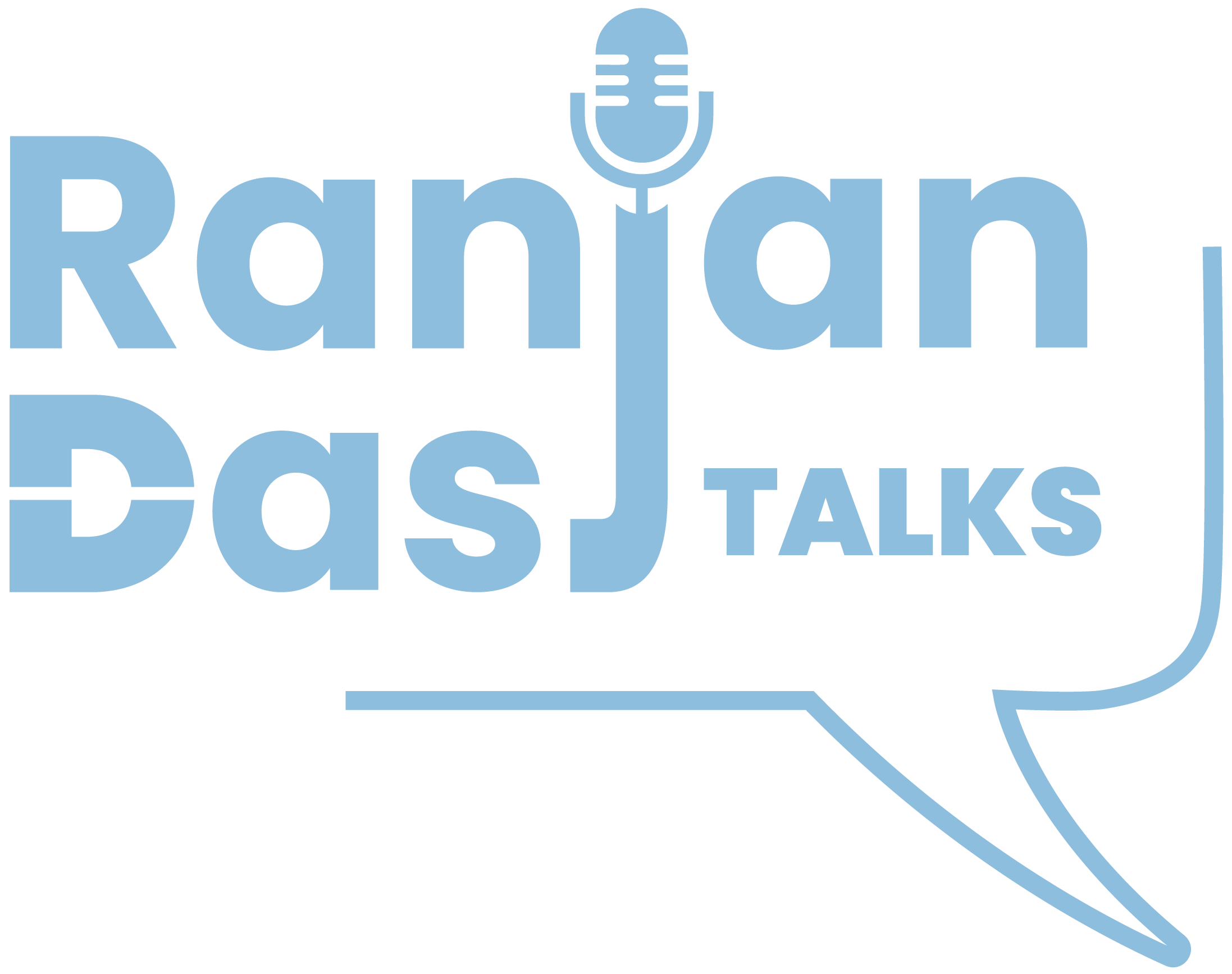
Blog
The 3Ps of Mid Managers Crisis
The 3Ps of mid-management—Performance, Perception, and Proving—are a complicated dance,

Ranjan Das
· Posted: 2024-10-22
Posted: 2024-10-22

The Pressure of Performance, Perception and Proving
With over three decades in leadership, I’ve watched mid-managers wrestle with three core struggles: Performance, Perception, and Proving their worth. These challenges often feel like a never-ending dance where the rhythm can either catapult them into leadership or leave them stuck. How about if we term it as the 3Ps of the Mid-Managers' crisis — break it down to understand it better:
1. Performance: The Paradox of Competence
- Competence Trap: When you’re too good at your job, you become like that person at a family gathering who always ends up grilling—everyone depends on you, but you’re never invited to sit at the grown-up table. Mid-managers who are excellent at execution find themselves trapped in roles where they’re indispensable but somehow always overlooked for the big promotion. “He’s great at solving problems,” they say. “But can he stop solving them long enough to think strategically?” they wonder.
- Fear of Delegation: Many mid-managers are convinced that delegating is the first step toward becoming irrelevant. It’s as if they’re afraid that, the minute they hand off a task, their boss will shout, “Aha! We don’t need you anymore!” The truth is, great leaders are defined by how well they elevate others, not by how tightly they grip their to-do lists.
- Over Management: Do you know the feeling when you try to manage every single detail in a project? It’s like trying to cook every dish at a dinner party—no one has a good time, least of all you. Mid-managers who micromanage end up stifling their teams, turning what could be a smooth-running machine into something resembling rush hour traffic.
2. Perception: The Trap of Visibility
- Doing vs. Being Seen Doing: Let’s face it—there’s a certain charm in hovering near every task, making sure everyone knows you’re “on top of things.” But being seen doing everything is the equivalent of waving your arms around in the background of someone else’s selfie. It looks busy but accomplishes little. Focusing on real outcomes instead of looking busy is the real game-changer.
- Political Balancing Act: Mid-managers often have to navigate the tricky waters of making both their teams and senior leadership happy. It’s a bit like being the middle child—you want to impress your older siblings while keeping your younger ones from rioting. The problem? Lean too hard in either direction and suddenly you’re either seen as “too bossy” or “too soft.” Cue the migraine.
- Seeking Approval Over Respect: Some mid-managers will twist themselves into pretzels to avoid conflict. This may make them popular at lunch, but it doesn’t earn long-term respect. Like trying to be everyone’s best friend in high school, it’s a losing game. Leaders aren’t remembered for how much they were liked—they’re remembered for making the tough calls.
3. Proving: The Weight of Validation
- Constant Proving: There’s nothing quite like the pressure of feeling like you have to prove yourself 24/7. For mid-managers, this often means working late nights and weekends, forever trying to prove they’re “on it.” It’s like running on a hamster wheel, except the hamster is stressed out and drinking too much coffee. Burnout isn’t just a possibility—it’s inevitable if the cycle doesn’t break.
- Responsibility Without Authority: Mid-managers often find themselves in the weird position of being handed big responsibilities with zero decision-making power. It’s like being asked to fly a plane but only being allowed to adjust the air vents. Frustration builds as they juggle responsibilities without the ability to influence big decisions, leading to behavior that often becomes less productive.
- Burnout: Overworking to prove your value is the fastest way to burn out. It’s like trying to build a bonfire with all your energy—at some point, the fire dies out, and so do you. The irony is, the more mid-managers push to prove their worth, the more they risk diminishing their long-term effectiveness. Overworked and underappreciated? Now, that’s a dangerous combination.
Subtle but Impactful Dilemmas Mid-Managers Face
Beyond the obvious challenges, several less noticeable dynamics complicate the role of mid-managers, which, when addressed, can drive both personal and organizational growth:
- The Paradox of Competence: Being too good at execution can trap mid-managers in operational roles. As they become indispensable, their upward mobility stalls, preventing them from being seen as future leaders.
- Undermining Through Over-Management: Micromanaging to appear indispensable can erode trust and stifle innovation. Over-involvement weakens the team's creativity, turning them from problem-solvers to task-followers.
- The Fear of Letting Go: The mental block around delegation stems from the fear of redundancy. Ironically, effective delegation elevates a leader’s worth and prepares their team for bigger responsibilities.
- Navigating Political Minefields: Balancing the needs of senior leadership and junior teams is delicate. Focusing too much on one side can harm credibility, leading to self-sabotage and strained relationships.
- Responsibility without Full Authority: Mid-managers often bear high-level responsibilities but lack decision-making power, leading to frustration. This gap can cause unproductive behaviors as they seek to prove themselves.
- Burnout from Constant Proving: The pressure to always be "on" leads to burnout, diminishing creativity and decision-making. Overworking to prove value often results in long-term ineffectiveness.
- The Trap of Being Liked vs. Respected: Prioritizing being liked over respected can undermine leadership. Avoiding tough decisions harms credibility, but earning respect requires navigating difficult conversations thoughtfully.
- The Specialist-to-Generalist Struggle: Mid-managers from specialist backgrounds may hesitate to take on broader strategic roles, delaying their leadership growth by clinging to their comfort zone.
- Outshined by Newer Talent: Younger talent's digital fluency can create insecurity, pushing mid-managers to resist change or overcompensate by holding onto past successes.
- Perception vs. Reality of Work Value: Mid-managers often focus on tactical wins, while senior leadership looks for strategic thinkers who drive long-term change. Bridging this gap is key to career advancement.
A Path Forward: Balancing Perception with Purpose
So, what’s the solution for mid-managers caught in this bind? The key lies in shifting the focus from proving worth to creating lasting impact. Here are a few strategies that can help navigate these waters:
- Embrace Authenticity: Instead of trying to be everything to everyone, mid-managers need to focus on what truly drives value for the organization. By aligning their actions with the broader goals of the company, they’ll naturally be seen as contributors to success—without needing to manufacture visibility.
- Delegate with Confidence: Being seen as a leader is not about being at the center of every decision but about empowering others to succeed. Mid-managers who delegate effectively, allowing their teams to shine, often gain more recognition for fostering a high-performing team than those who try to do it all themselves.
- Measure What Matters: Focusing on high-impact work that drives real results—rather than high-visibility tasks—builds a stronger case for advancement. Mid-managers should prioritize delivering tangible outcomes, letting the work speak for itself.
- Build Alliances, Not Fiefdoms: Collaboration is the currency of leadership. Mid-managers who build strong networks across the organization, sharing credit and supporting others’ success, will naturally gain recognition without needing to fight for it.
Conclusion
The 3Ps of mid-management—Performance, Perception, and Proving—are a complicated dance, but they don’t have to be a trap. The secret lies in shifting from constantly proving yourself to delivering lasting results, delegating to elevate your team, and making tough decisions that earn respect. Leadership isn’t about holding onto every detail—it’s about letting go in the right places, trusting your team, and focusing on the long game. After all, no one gets promoted for doing everything—they get promoted for steering the ship in the right direction.
This blog was originally published on: Ranjan Das - LinkedIn
Marketing is everything, products are
woven around it.